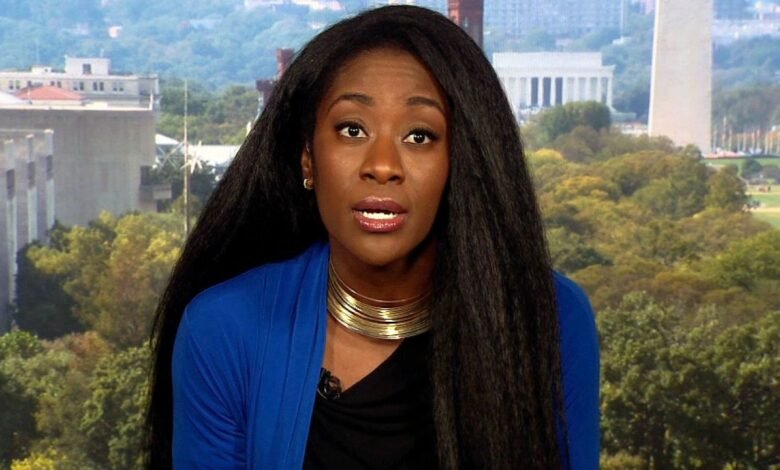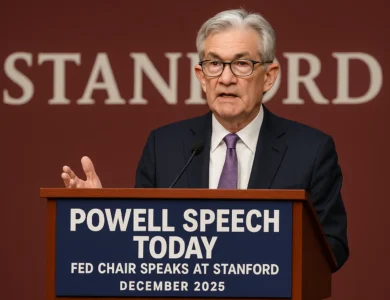
Karen Attiah’s emerged as one of the most influential voices in contemporary journalism, writing extensively on issues related to race, international politics, gender, and human rights during her tenure at The Washington Post. As the Post’s founding Global Opinions editor and award-winning columnist, Attiah consistently sparked global debates through her fearless commentary and unwavering commitment to justice.
Her work gained international recognition when she won the prestigious 2019 George Polk Award alongside David Ignatius for their coverage of the murder of their colleague Jamal Khashoggi. She was also named 2019 Journalist of the Year by the National Association of Black Journalists for her relentless pursuit of accountability in Khashoggi’s case.
Throughout her career, Karen Attiah’s columns have consistently challenged readers to confront uncomfortable truths about global politics, social justice, and human rights violations. Her unique perspective as a journalist who reported from multiple countries including Ghana, Nigeria, and Curacao, combined with her role as a global opinion leader, positioned her to address complex international issues with nuanced understanding and passionate advocacy.
This article explores how Attiah’s journalism has sparked international debates, influenced policy discussions, and brought critical global issues to the forefront of public consciousness. From her groundbreaking work on press freedom to her commentary on racial equity, her columns have consistently generated worldwide conversations that extend far beyond traditional media boundaries.
The Foundation of Global Impact: Attiah’s Journalistic Philosophy
Championing Press Freedom and Accountability
Karen Attiah’s most globally impactful work centered on her coverage of Jamal Khashoggi’s murder, which earned her international acclaim and multiple awards. Her relentless pursuit of accountability in this case demonstrated how investigative journalism could spark global diplomatic tensions and force governments to address human rights violations.
Her approach to press freedom advocacy went beyond traditional reporting, as she used her platform to maintain pressure on international leaders and keep critical stories in the global spotlight. This methodology became a hallmark of her journalistic impact, showing how sustained coverage could influence international relations and policy decisions.
International Perspective on Domestic Issues
Attiah’s global perspective allowed her to connect domestic American issues with international contexts, creating thought-provoking analyses that challenged readers to think beyond national boundaries. Her work consistently demonstrated how social justice movements, racial inequality, and political developments in the United States had global implications and parallels.
Her unique background as someone who lived and reported from multiple countries provided her with the cultural competency to address international affairs with authenticity and depth. This global lens became instrumental in generating cross-cultural debates about universal human rights and democratic values.
Breaking Barriers: Diversity and Representation in Global Media
Pioneering Global Voices
As the Post’s founding Global Opinions editor, Attiah revolutionized international commentary by recruiting writers from around the world, ensuring diverse voices were represented in mainstream American media. This initiative sparked debates about media representation and the importance of including global perspectives in domestic news coverage.
Her work in this role demonstrated how editorial leadership could reshape public discourse by amplifying previously marginalized voices. The global opinion platform she built became a model for other major publications seeking to diversify their international coverage.
Addressing Racial Equity in International Context
Recognized as “an evangelist for racial equity and justice,” Attiah consistently connected American racial issues with global human rights movements. Her commentary on racial justice often drew parallels between domestic civil rights struggles and international liberation movements, sparking international discussions about systemic inequality.
Her approach to racial commentary challenged traditional boundaries between domestic and international reporting, demonstrating how social justice issues transcended national borders. This perspective generated significant debate about the universality of human rights and the interconnectedness of global justice movements.
The Khashoggi Case: Journalism as Global Activism
Sustaining International Pressure
Attiah’s coverage of the Jamal Khashoggi murder exemplified how investigative journalism could maintain international pressure on powerful actors and governments. Her sustained reporting and commentary kept the case in global headlines, preventing it from fading from public consciousness.
The impact of her Khashoggi coverage extended beyond journalism into international diplomacy, influencing how governments and international organizations approached press freedom issues. Her work demonstrated the power of persistent journalism in maintaining accountability for human rights violations.
Awards and Recognition for Global Impact
The recognition Attiah received, including the George Polk Award and the National Association of Black Journalists’ Journalist of the Year Award, highlighted how her work transcended traditional journalism to become a form of global activism.
These accolades recognized not just her reporting skills, but her ability to generate international conversations about press freedom, human rights, and the role of journalism in promoting global accountability. Her award-winning journalism set new standards for how international stories could be covered with both professional excellence and moral urgency.
Contemporary Challenges: Social Media and Modern Journalism
Navigating Digital Discourse
Recent developments in Attiah’s career have highlighted the challenges facing modern journalists who engage with social media platforms and digital discourse. The debates surrounding her recent departure from The Washington Post illustrate the complex intersection of journalistic freedom, social media engagement, and institutional expectations.
Her experience reflects broader questions about how contemporary journalism should balance traditional editorial standards with the realities of digital communication and real-time commentary. This situation has sparked industry-wide discussions about the boundaries of journalistic expression in the digital age.
The Evolution of Global Commentary
The challenges Attiah has faced also represent the evolving nature of global political commentary in an increasingly polarized media landscape. Her case has generated discussions about how journalists can maintain their critical voice while navigating institutional pressures and public expectations.
These contemporary developments have added another dimension to her impact on global journalism, as her situation has become a case study in press freedom, editorial independence, and the changing nature of media institutions.
Educational Impact and Knowledge Sharing
Training Future Journalists
Attiah’s commitment to education, demonstrated through initiatives like her Resistance Summer School course on race, media, and international affairs, shows her dedication to training the next generation of global journalists. Her educational efforts have sparked discussions about how journalism education should incorporate international perspectives and social justice frameworks.
Her approach to journalism education emphasizes the interconnectedness of domestic and international issues, preparing future journalists to think globally while reporting locally. This educational philosophy has influenced discussions about curriculum development in journalism schools worldwide.
Sharing Global Perspectives
Through her educational initiatives, Attiah has created platforms for sharing international perspectives on contemporary issues. Her courses and speaking engagements have generated debates about the role of education in promoting global understanding and cross-cultural communication.
Her commitment to education demonstrates how influential journalists can extend their impact beyond traditional media through knowledge sharing and mentorship. This approach has sparked conversations about the responsibility of established journalists to nurture diverse voices in the profession.
The Legacy of Impactful Journalism
Inspiring Global Conversations
Karen Attiah’s journalism has consistently demonstrated the power of thoughtful commentary to generate meaningful global conversations. Her work has shown how individual journalists can influence international discourse and promote accountability on a global scale.
Her journalistic legacy includes not just the stories she covered, but the conversations she sparked and the standards she set for international reporting. Her impact extends beyond traditional metrics of success to include the lasting influence of her ideas and perspectives on global discourse.
Setting Standards for Future Journalism
The debates and discussions generated by Attiah’s work have established new benchmarks for how global journalism should address complex international issues. Her approach has influenced how other journalists tackle stories involving human rights, social justice, and international accountability.
Her career trajectory, including both her achievements and recent challenges, provides valuable insights into the evolving nature of contemporary journalism and the ongoing debates about press freedom, editorial independence, and the role of journalists in promoting global justice.
Conclusion
Karen Attiah’s career represents a masterclass in how impactful journalism can spark global debates and promote international accountability. From her award-winning coverage of the Khashoggi case to her pioneering work in global opinion journalism, she has consistently demonstrated the power of thoughtful, persistent reporting to influence international discourse.
Her work has shown how contemporary journalists can use their platforms to address complex global issues while maintaining professional excellence and moral clarity. The international conversations sparked by her columns continue to influence discussions about press freedom, human rights, and the role of journalism in promoting global justice.
As the media landscape continues to evolve, Attiah’s career provides valuable lessons about the importance of diverse voices in journalism, the power of sustained reporting on critical issues, and the ongoing need for journalists who are willing to challenge powerful interests in pursuit of truth and accountability.
Her legacy demonstrates that the most impactful journalism often emerges from the intersection of professional excellence, moral courage, and a commitment to amplifying voices that might otherwise go unheard. Through her work, she has shown how individual journalists can contribute to global conversations that extend far beyond traditional media boundaries.
Read More: Bill Ackman 5 Brilliant Investment Strategies That Dominate






